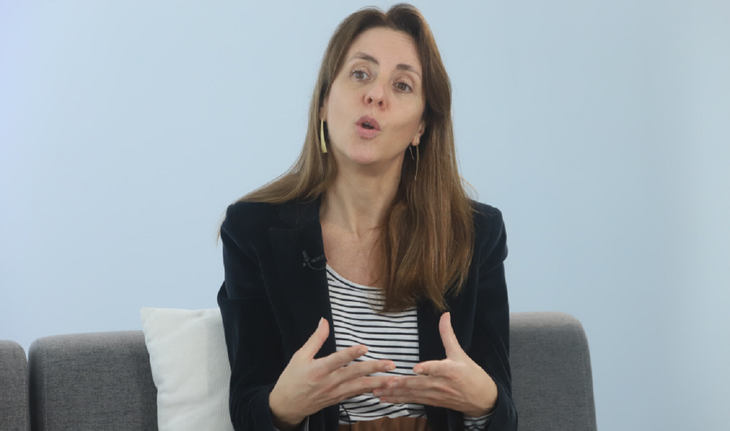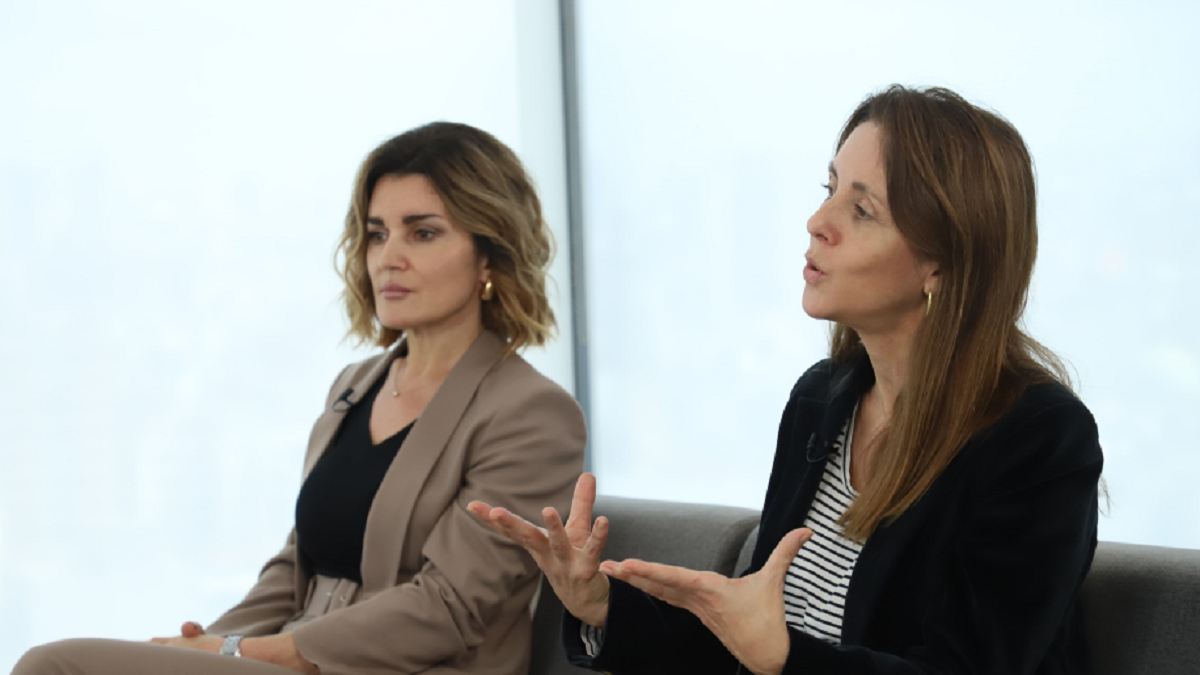Carolina Langan, Head of Sustainability Genneia; and Claudia Kalinec, commercial director of Pelco Group, led the fourth panel of Scope of debate on sustainable development, moderated by Ámbito’s policy editor, Ariel Basile.
Langan opened the cycle, entitled “Sustainable companies: the keys to making the leap in quality”, putting the focus on that “A sustainable company is not about having a place in the company’s organizational chart, it is a value that we all have to be aligned with” and the key is that it is truly comprehensive and works with all areas.”
“Sustainability is about meeting the expectations of different stakeholders and opening up the management kitchen to all the company’s stakeholders. It is a way of working where relevant information is systematized. In short, It is a guide for management and at the same time a form of accountability,” graphic.
Along the same lines, Kalinec stated that the fact that something is sustainable is “that it is long-lasting and with care for resources” and highlighted that “our activity (waste collection) has that principle intrinsic to it because It is necessary for the sustainability not only of the industry, but of the community.”
“Waste treatment is an essential industry and we are here to tell you about our first sustainability report, which is where all these actions converge in a given period,” he added.
Strategies and objectives
Regarding the objectives of Grupo Pelco, Kalinec spoke of “generate the least environmental impact, have a good relationship and openness with the community “Because that has changed in recent decades. Today you need to have a social license and to do that you need to make your activity transparent and accountable.”
panel11.png
“The report is addressed to the community, in addition to partners and our suppliers. That is what accountability and responsibility is all about. make the activity transparent in each of the parts, from the value chain to the traceability of the rest of the activities,” he noted.
Regarding the next steps, he stated that “the main project is the installation of a photovoltaic park in Puerto General San Martín, “This has nothing to do with cutting our activity, but rather with diversifying towards clean energy to supply ourselves primarily in our local plants and upload the rest to the grid.” “More than anything, it has to do with an issue of offsetting our carbon footprint,” he warned.
Meanwhile, Langan highlighted: “With the relevance that the energy transition acquires, we consider that We have a key role to play in the fight against climate change and the decarbonisation of the economy.”
“We provide different tools, not only the core of the business, which is the renewable energies and energy contracts to private parties, too emission reduction certificates. We have a very important role as agents of change in everything related to the energy transition,” he said.
“The company is growing, we have ten operational centers with wind and solar energy, which represent 19% of the market and 17% in terms of generation. And we continue to grow,” he said.
“Sustainability is a driver of competitiveness”
On the other hand, Langan stated that “today, sustainability is a driver of competitiveness. It’s a one-way street, I don’t see it as something that can be turned back on.”
“I think it is strengthening and making it more competitive because it translates into investor confidence. When a company opens up its management and shows transparency, that’s where it’s at. the way to grow and be more competitive”, he highlighted.
At the same time, Kalinec said: “That finances have environmental standards to meet sustainability requirements means that areas that previously had nothing to do with or were not linked to these issues, now are. I think it is also a generational change.”
“One thing leads to another, but it definitely means that today there is greater awareness. Not only internally, but there are queries or questions that a client or someone in the community might not have asked you before about what is done in a certain process. In fact, measuring the carbon footprint is a consequence of that. The system leads you in some matters and in others we have to ask our suppliers to adapt,” he stressed.
Argentina’s opportunities
Thinking about the country’s possibilities, Kalinec said: “I think our market has not yet matured, but it is because there is a crisis. There is a deficit in waste treatment, due to a lack of control and a cultural issue, which also involves or encompasses the State’s oversight management.”
panel1.jpg

Meanwhile, he recalled a bi-monthly index prepared between the UBA and the University of Rosario which indicates that “only 8 to 10% of the industrial waste generated is treated. “This is quite a projection for us, because the moment that waste enters the formal circuit it means that The industry has to make more investments and adapt to be able to meet this demand. which will have to be formalized at some point if we go down this path towards waste sustainability,” he said.
“There are new generations that are bringing up the issue as a priority and it has to do with population growth and consumption. We see it as an opportunity to start having greater oversight. There is a need for a State policy that considers waste management as a priority issue on Argentina’s agenda today,” he sentenced.
In turn, Langan stated that “the demand for renewable energy has grown exponentially in recent years and there are commitments at the country level to reach certain renewable generation”, after which he detailed: “We have parks under construction that already have supply contracts, There is a demand that is much greater than even the supply.”
“Going back to what is the waste management, we see “It is also a huge opportunity. Today we consider the material receipts of waste as an asset because we can take advantage of them or revalue them to give them added value for the benefit of the community,” he insisted and called on “moving from a linear production model to a circular production model and revaluing waste.”
Source: Ambito




